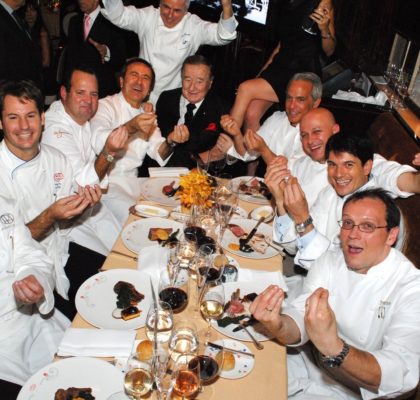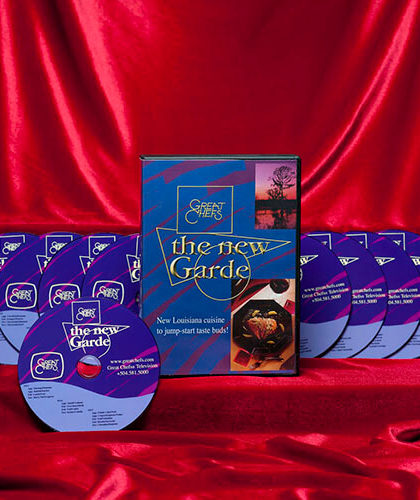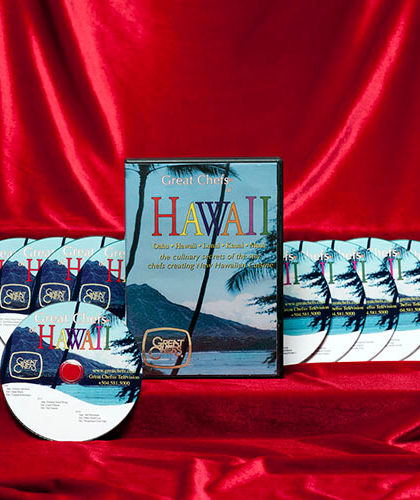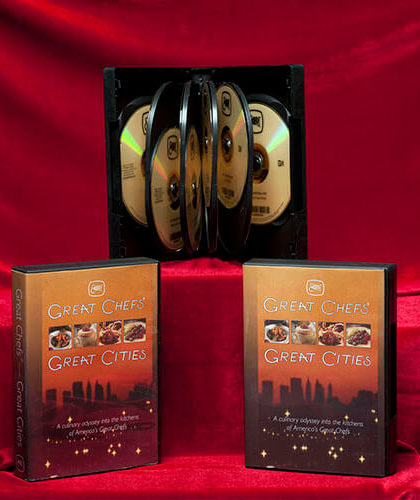
This past Saturday evening, our father, Richard J. Brennan, Sr. (better known as Dick) passed away after 83 years of living his life to the fullest. We couldn’t be prouder to have called him Dad, and we’d like to take a moment to share his story. It is definitely one that deserves to be told.
Our Dad was kind, gentle and giving. A mentor, visionary, leader and statesman. He loved his family, staff, city, state and country. His motto was “leave it better than you found it.” He was the ultimate New Orleanian and a true Irishman.
He was born on Third Street in the Irish Channel in November of 1931. Dad was the second youngest of six children, in what would become a family known for fine dining Creole in New Orleans. His life reads like a storybook, in which good fortune, hard work and ingenuity led to many successes. In high school at St. Aloysius, he was a star basketball player. He was all-district and all-state for his high school career and State MVP for three years (all except his freshman year). Coach Rupp from the University of Kentucky recruited him for their championship team. However, his mother fell ill prior to the start of school, so he opted to stay close and attend college at Tulane University in New Orleans.
A star of their team, he led Tulane to victory over Kentucky in his senior year—the only game that Kentucky lost that season. For his successes on the basketball court, he was inducted into the Tulane Hall of Fame in 1991.
During college he began dating mom, who would become his wife of nearly sixty years, Lynne Trist Brennan. They met through our aunt Dottie – mom’s friend from their years of attending the Academy of the Sacred Heart in New Orleans. Shortly after graduating from Tulane, they were married. Dad completed two years of Law School before he enlisted in the Army and was stationed in Augusta, Georgia and Williamsburg, Virginia. When he returned to New Orleans, he intended to finish Law school but his brother, Owen, and both parents passed away within a year of one another, he instead went to work at the family’s restaurant, Brennan’s on Royal Street. With his siblings, he was instrumental in opening Brennan’s in Houston, Dallas and Atlanta, as well as Chez Francis in Metairie, Louisiana, Mr. B’s Bistro and the Friendship House on the Gulf in Mississippi.
In 1973 the Brennan’s split their restaurant interests, and Dad along with his siblings John, Adelaide, Ella and Dottie took control of Commander’s Palace. The New Orleans’ Garden District landmark had faded over the years and the siblings were tasked with reviving the nearly 100-year-old restaurant. Dad was passionate about New Orleans and America. He recognized the sheer bounty of our region, including ingredients and talent. Instead of European chefs, he hired from the area. Chef Paul Prudhomme and Dad collaborated on dishes that today have become synonymous with New Orleans cuisine. He walked to work each day from our home on Third St., and each day he passed a pecan tree. He wondered why almonds were used to coat fish and not pecans that were grown locally? From this simple question posed to Chef Prudhomme, pecan crusted fish was born.
The same could be said about his taste in spirits. He featured California wine on the list at Commander’s Palace years before this was commonplace. Dan Duckhorn from Duckhorn Wine said that Dad believed in him and his product and that he was the first to put it on a wine list. He was well known for saying “If you’re going to drink whiskey, drink American, drink bourbon!” Growing up with this mantra, helped inspire the concept for our restaurant, Bourbon House.
When Dad and his siblings first bought Commander’s, their goal, similar to any new restaurant’s goal, was to bring guests in the door. Breakfast at Brennan’s had been very popular and they wanted to create a similar environment filled with celebration for brunch. It was Dad who thought that two of New Orleans most valued cultural possessions – food and Jazz – would make a fantastic marriage as “Jazz Brunch.” On Saturday, my sister and I, along with our cousins headed downtown on the Streetcar with paper flyers. We handed them out on Canal and throughout the Quarter. Not sure what to expect the next day for brunch he staffed a little more than usual. The turnout beat all expectations, and the next weekend he called in reinforcements in the form of us, our cousins and our friends. That was the beginning of what today is celebrated around New Orleans and throughout the country – Jazz Brunch.
Friend, Chef, and New Orleans restaurant owner Frank Brigtsen recalled, “I learned to sauté under the watchful eyes of Mr. Dick Brennan, who monitored every single plate that left the kitchen for Sunday Jazz Brunch at Commander’s Palace. Not all of my omelets passed muster. “Can we do a little better than that?” he would gently ask. His generous spirit, innate brilliance, and warm heart touched me throughout the years, whether it was a touch of Pernod at his home on Fat Tuesday morning, his winning smile at a special event, or his gracious charm when dining at Brigtsen’s with his lovely wife Lynne. His mark is felt throughout the city of New Orleans, a testament to a life well lived. I am grateful for his friendship.”
Passionate about all things New Orleans, and wanting to share his city’s unique culture with visitors, he was instrumental in creating what today is the New Orleans Convention and Visitors Bureau. He was also the first of his family to be President of the Louisiana Restaurant Association and later served many terms on the National Restaurant Association’s board.
Hand in hand with his desire to share his love of New Orleans with visitors, he co-founded the Krewe of Bacchus with his nephew, Pip Brennan. At the time Bacchus was founded, the norm for most Mardi Gras krewes was to invest the majority of member’s dues into the social balls and related krewe activities. Dad and Pip ensured that the majority of the Krewe of Bacchus’ dues would be used toward creating better floats and throws (beginning what is now commonplace of having dues include a bag of custom throws). This, in turn, meant a better Mardi Gras for visitors and locals along the parade route and helped improve the world’s best “free party!”
Above all, Dad was a mentor—a mentor to us, his grandchildren, his chefs and countless individuals who proudly donned their black and whites. In an interview with Times Picayune, Emeril Lagasse once said, “You could have no better mentors that Ella and Dick. They are absolutely the best. They are legends. They are masters of the restaurant business.”
As much as New Orleans and Dad are one in the same, so can be said for him and hospitality. His restaurants were an extension of his home, a place where guests came for the complete experience; from food to service, it was a place where everyone felt special. He leaves this legacy, along with so much more, through us and our restaurants, as well as the several restaurants operated by his extended family—all of his former employees.
He’ll be deeply missed, but he leaves behind a legacy so profound that his spirit will live on through the beautiful city he called home. It’s only natural to raise a glass and toast in his honor to a life well lived.
P.S. Our Dad grew up playing at Kingsley House and has always supported the work they do. Should friends desire, contributions may be made to Kingsley House.








